- Home /
- press release/
- Zannier Omaanda Receives the Green Globe Certification
Zannier Omaanda Receives the Green Globe Certification
Posted on by ZannierHotels
ZANNIER OMAANDA RECEIVES THE GREEN GLOBE CERTIFICATION
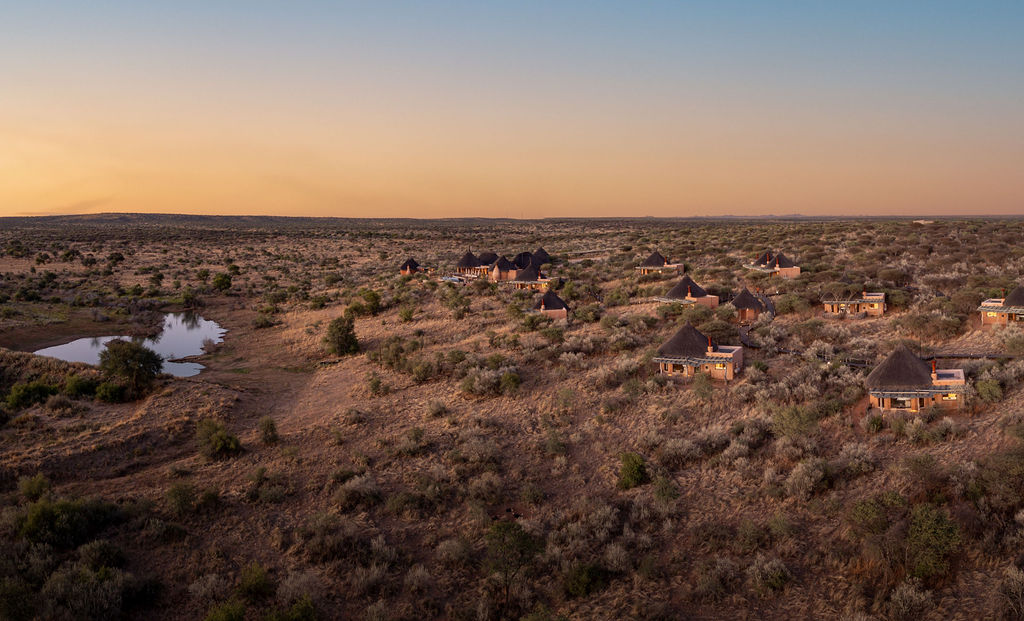
GREEN GLOBE CERTIFICATION
WINDHOEK
2025 marks a proud milestone in sustainable management and operations for Zannier Omaanda, that has just received the Green Globe certification early January. Nestled within the Zannier Reserve by N/a'an ku sê, Zannier Omaanda is a 15-room lodge that offers a unique blend of luxury and authenticity with its Owambo-style thatch and clay huts, spread across 22,000 acres of Namibia's pristine wilderness.
As a reflection of its commitment to preserving this remarkable environment, the lodge has implemented ambitious responsible practices throughout the property. The certification recognizes the lodge’s efforts, notably in reducing waste, eliminating plastic and preserving biodiversity.
Jo Anne Volker, General Manager of Zannier Omaanda commented “I’m thrilled about this award and incredibly proud of the Zannier Omaanda team for their dedication to minimizing our environmental footprint and preserving this beautiful wilderness. Being recognized for our efforts is a huge morale boost and motivates us to continue improving our operations and becoming even more eco-friendly.”

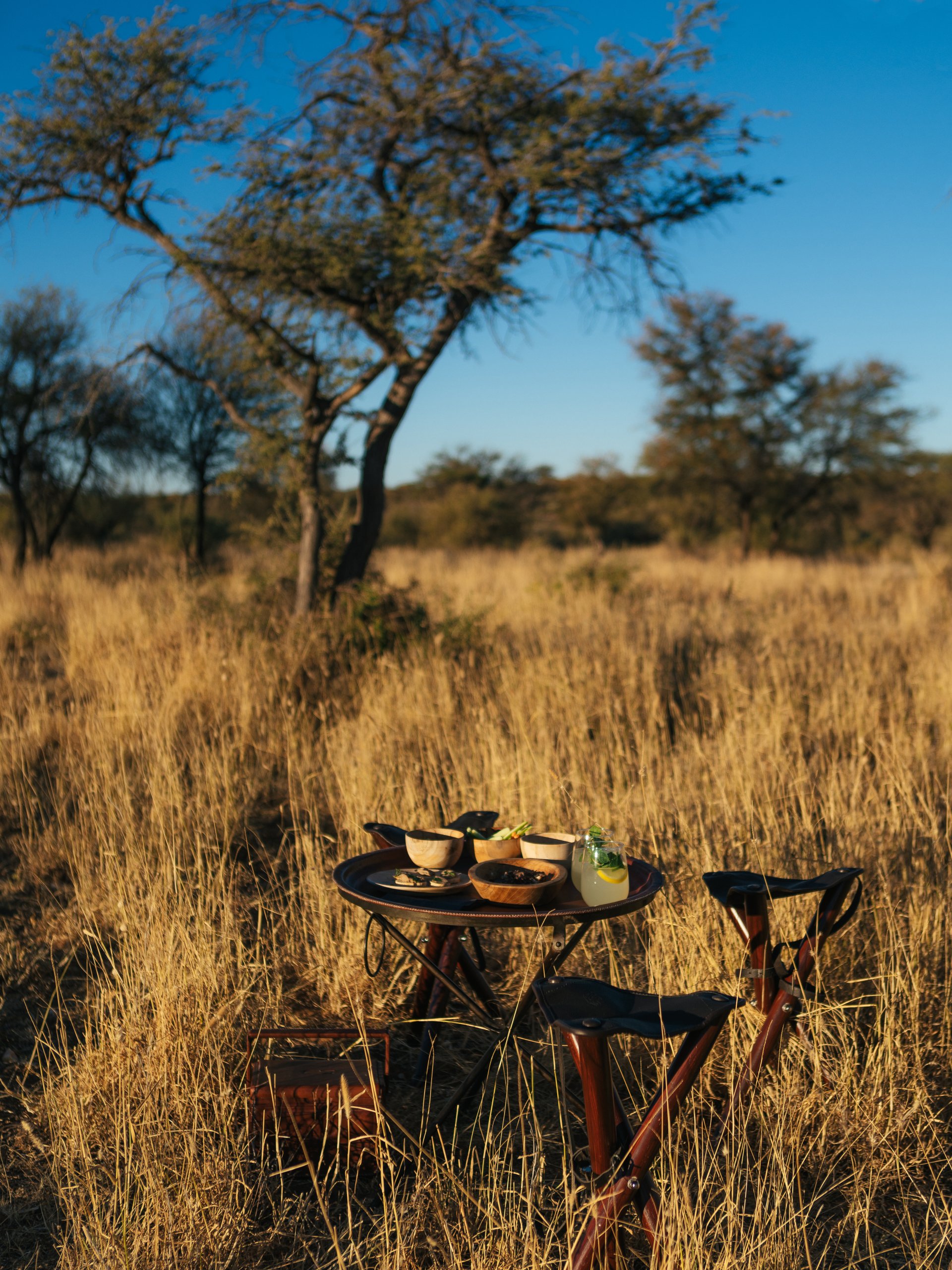
ENERGY EFFICIENCY & RENEWABLE ENERGY
Energy efficiency is a key focus at Zannier Omaanda. The lodge utilizes low-consumption LED lighting and split-type air conditioning systems which are turned off when rooms are unoccupied, ensuring significant energy savings. The main restaurant is an open-air space, eliminating the need for air conditioning while promoting natural ventilation. To further conserve energy, lighting is minimized in the evenings to create an intimate ambiance, and fireplaces provide natural warmth during the winter months while also repelling insects naturally in guest rooms.
In line with the lodge’s commitment to reducing carbon emissions, the staff village is powered by solar panels up 50% at present. The resort incorporates energy-saving features such as light
detectors and electric appliances rated A++, while heating and cooling systems are managed with thermostats for optimal efficiency. These efforts are supported by ongoing initiatives like guests’ encouragements to reduce linens and towel changes, further minimizing our environmental footprint.
Read more about our Sustainable Management Plan
JOURNEY TO ELIMINATE PLASTIC & REDUCE WASTE
Zannier Omaanda is committed to reducing waste by 2% year on year and pledged to eliminate single-use plastics across its operations by the end of 2024. These two objectives were successfully achieved last year.
Further waste recycling and sorting systems have been implemented, and paper towels have been entirely phased out. In guest rooms, single-use items have been replaced by sustainable alternatives. Bathroom amenities are provided in refillable large bottles in line with zero-plastic policies. Furthermore, natural sponges are offered to guests, and plastic bottles have disappeared from minibars, replaced with refillable glass bottles. Plastic bin liners are no longer used and laundry is delivered in reusable baskets rather than wrapped in paper or plastic. All those changes led to a 23% decrease in the total weight of waste generated per occupied room in 2024 (now 9.6 kg).
Additionally, the lodge actively encourages its suppliers to adopt eco-friendly practices by using reusable containers instead of single-use plastic packaging. These efforts are part of Zannier Omaanda’s ongoing journey to create a sustainable, waste-conscious environment.
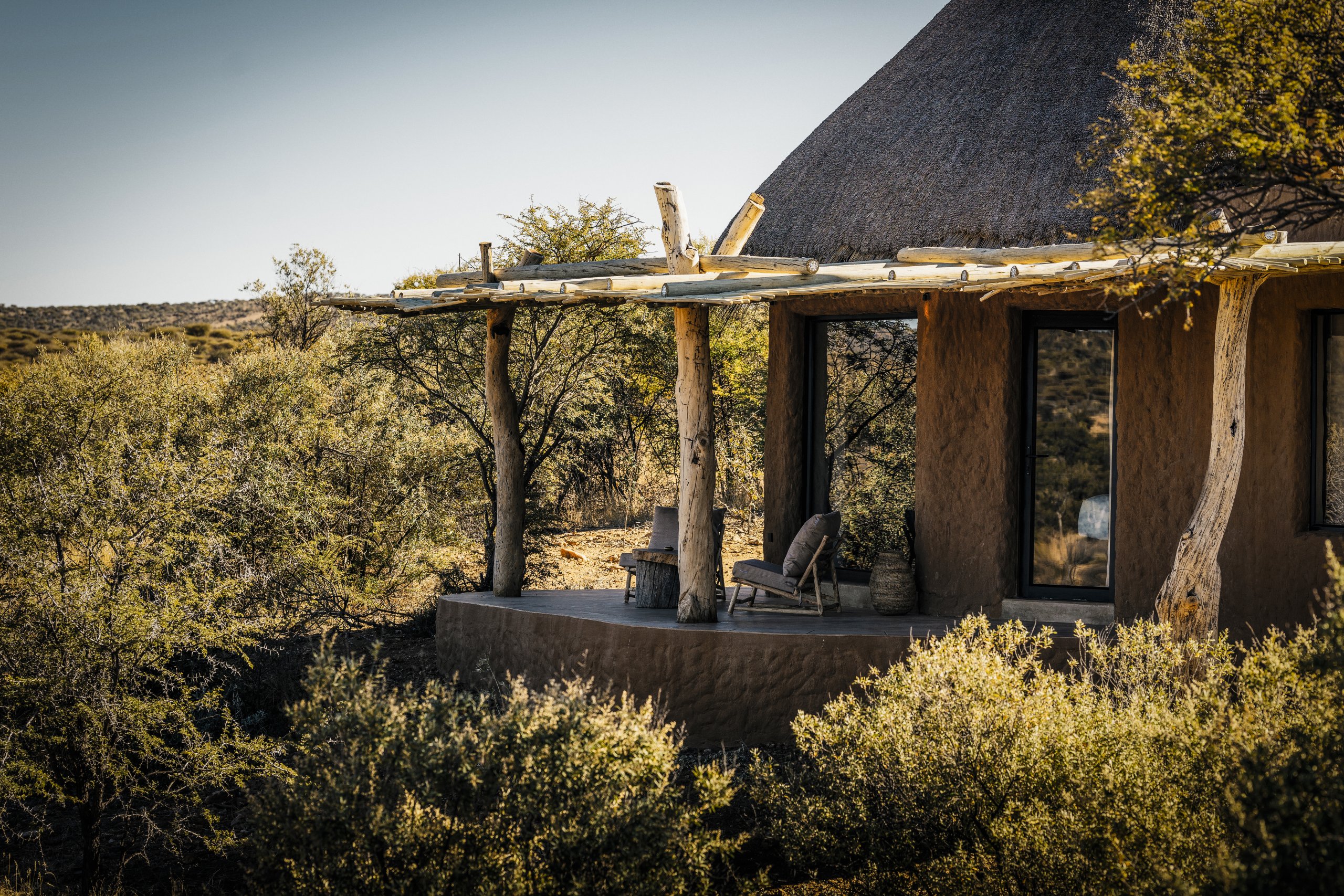
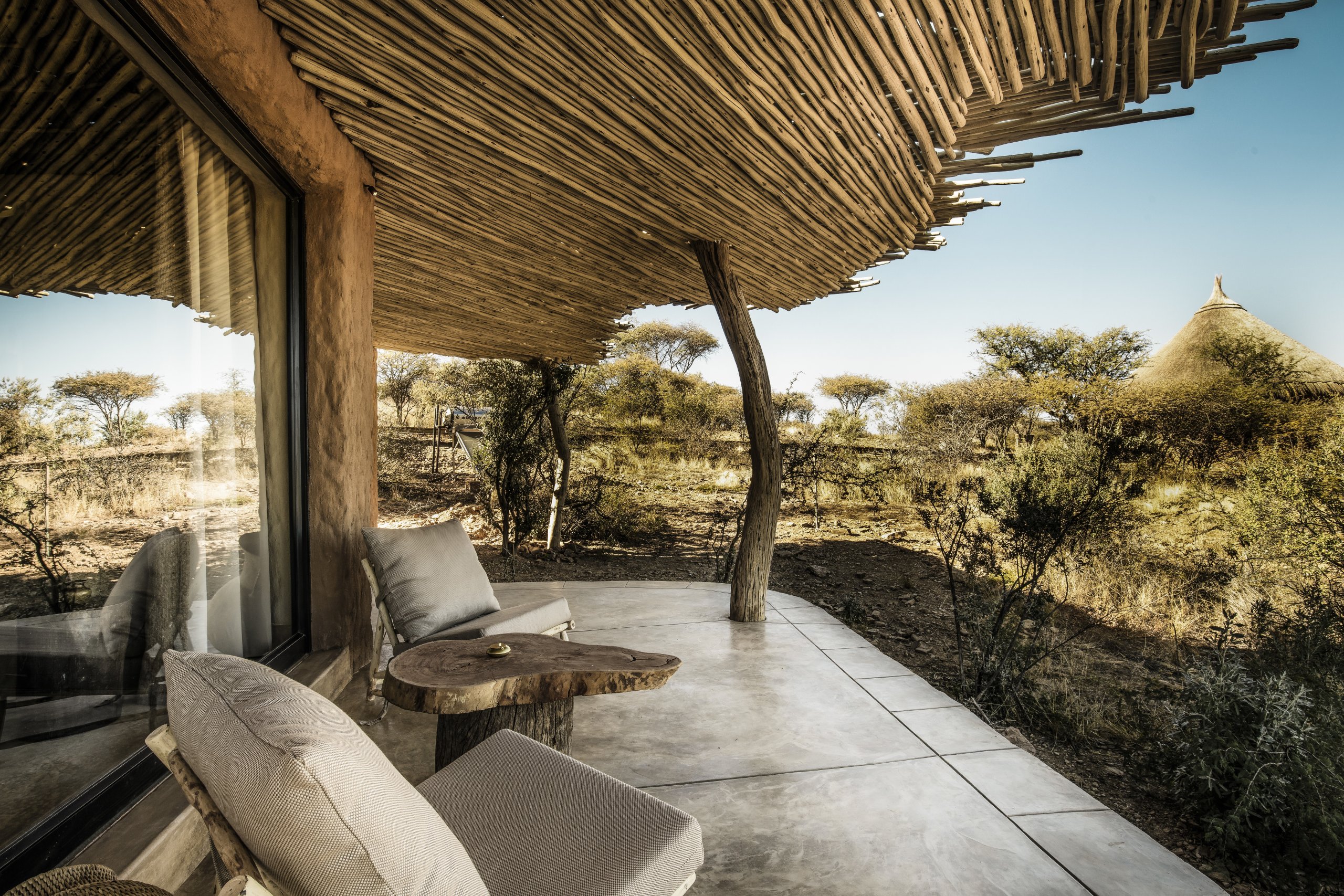
CREATION OF THE ZANNIER RESERVE, LEADING CONSERVATION RESERVE
Zannier Omaanda is set within 9,000 hectares of protected savannah. This conservation reserve is maintained in partnership with the N/a’an ku sê Foundation. The Zannier Reserve, as it is called, actively protects biodiversity and fights the extinction of endangered species through research, relocation and reintroduction efforts. The Zannier Reserve is blessed with a great biodiversity of habitat and wildlife including giraffes, warthogs, a wide variety of antelopes, ostriches, jackals, carnivores and baboons. But more than a game reserve, it is a vibrant sanctuary that plays an active conservation role in Namibia, with a non-intrusive policy. For example, within the reserve, animals are prioritized before humans, which is the reason why the lodge is not fenced.
Since its launch in 2018, a dozen of caracals, four desert-adapted lions (one male and three female), three African bull elephants (Apollo, Ace and Astro) and 21 white rhinos have been successfully relocated within the Zannier Reserve. In addition, an Anti-Poaching Unit of 12 fearless rangers assisted with the K9 unit (trained dogs) has been created to patrol the reserve 24/7 and protect both vulnerable and critically endangered wildlife species. In 2024, the Unit apprehended ten poachers and proudly celebrated six consecutive years without any incidents of poaching due to their devoted service. A ten-hectare convalescence clinic for rhinos and elephants, the Shilow Wildlife Sanctuary, financed by the Jolie-Pitt Foundation, has also been established and a conservation levy programme has been initiated at Zannier Omaanda to encourage every visitor to contribute to the ambitious conservation plan.
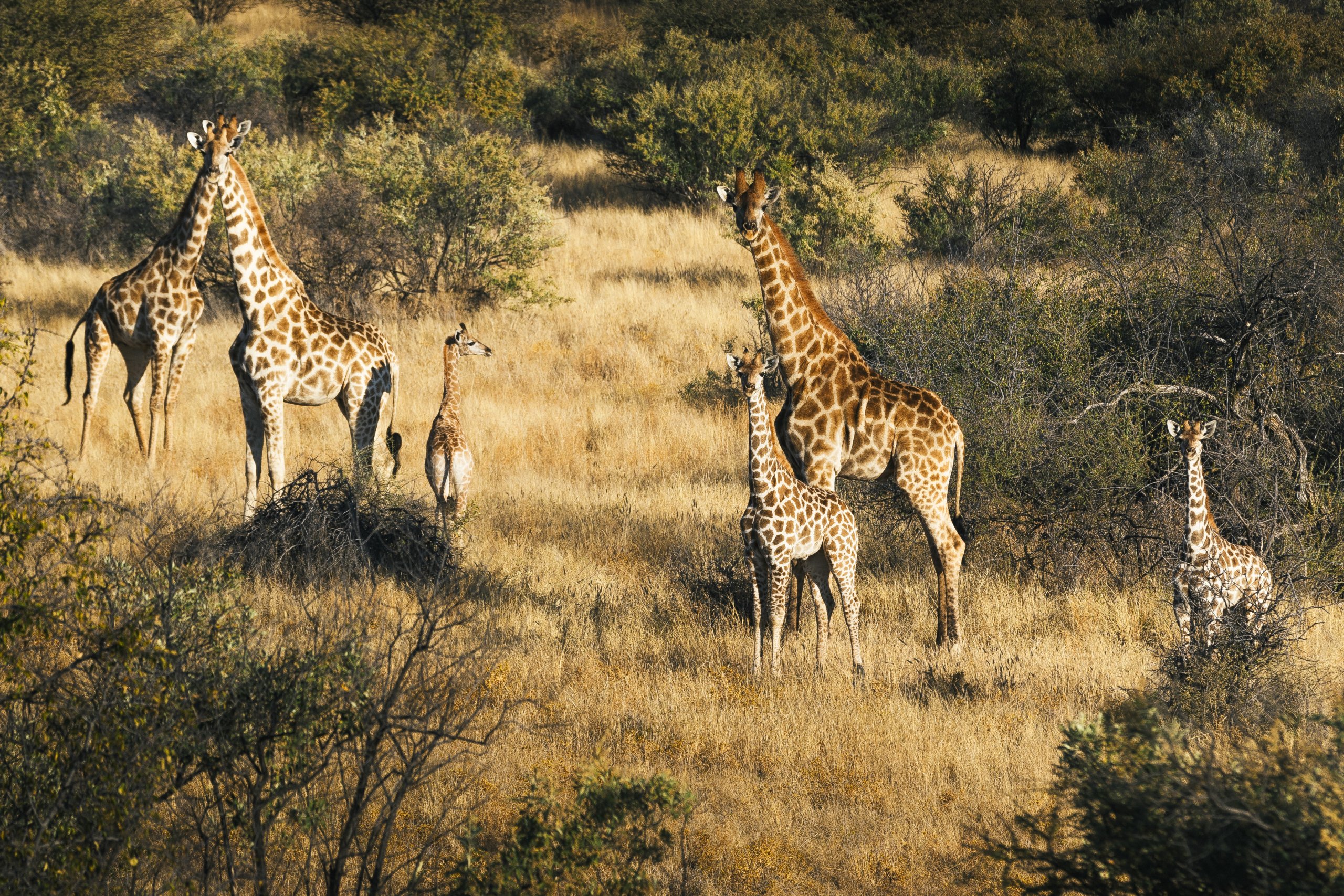
In addition to wildlife conservation, Zannier Omaanda is dedicated to restoring and preserving the surrounding landscapes. The property’s design incorporates raw materials and traditional techniques, drawing inspiration from Ovambo architecture to blend seamlessly with its natural environment. Buildings are created from piled sandbags, covered with chicken mesh and mud to reflect the Namibian sand colour and rooms are thatched by hand. Environmentally conscious construction practices ensure minimal disruption to the ecosystem, with plants removed only when absolutely necessary and replanting undertaken to maintain ecological balance. Development is carefully managed to minimize the creation of new roads and pathways, further reducing environmental impact and preserving the integrity of the savannah.
While sustainable practices are still growing in Namibia, receiving the Green Globe Certification underscores the significance of taking action, no matter how small. Jo Anne Volker emphasizes the importance of responsible behaviour: “we encourage everyone – not only in the tourism sector but across the entire country – to prioritize sustainability and embrace environmentally friendly practices in both business and daily life. By leading through example, we hope to inspire others to join us in working toward a greener, more sustainable future for all who share this planet.”